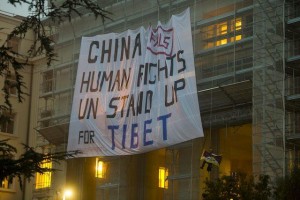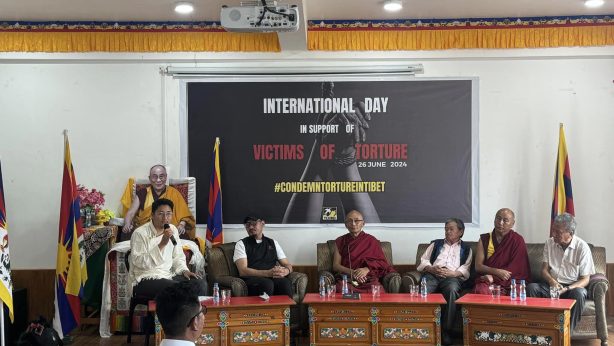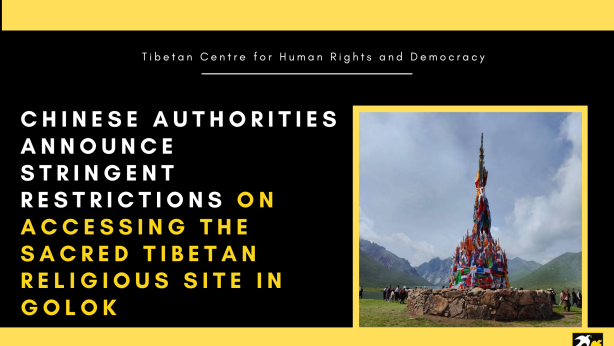Questions abound as UNHRC adopts report on China’s Second UPR

On 20 March 2014, the United Nations Human Rights Council adopted the Report of the Working Group on the Universal Period Review on People’s Republic of China (PRC). The Universal Periodic Review (UPR) system allows every State’s human rights record to be reviewed and discussed by other States. The State under review receives recommendations from other States that it either accepts or reject. The UPR is a unique opportunity to hold States publically accountable for their human rights record. States, like China, that want to be seen as protecting human rights put a lot of emphasis on their UPR review.
“China’s strategy during the UPR was to try and equate laws that are not enforced and empty promises with progress on human rights,” said Ms. Tsering Tsomo, the executive director of TCHRD. “The deteriorating human rights situation in Tibet and the recent death of Cao Shunli on 14 March demonstrate that China’s laws and promises have failed to improve people’s lives and protect human dignity, which is the purpose of the human rights system.”
On 18 March, the United States and Greece, speaking on behalf of the European Union, raised the death a Cao Shunli with the PRC. Cao Shunli was a human rights defender, who was abducted by the Chinese in September 2013 and formally arrested in October. She died on 14 March 2014 after being denied medical care. The PRC responded by denying that Cao Shunli had not received medical treatment. During the PRC’s UPR, the PRC labeled human rights defenders, like Cao Shunli, as criminal and warned States against glorifying criminals. (paragraph 184). The PRC also defended its crackdown on terrorism, which States said was religious and ethnic cleansing. The PRC described the Dalai Lama holding a prayer service for self-immolators as, “terrorism in disguise.”
The PRC received seven recommendations that specifically mentioned Tibet. The PRC rejected five of the recommendations. Three of recommendations (paragraphs 186.142, 186.232, 186.233) the PRC rejected called on the PRC to stop persecuting and disproportionately punishing ethnic minorities including Tibetans and to allow their participation in government. The PRC rejected these recommendations by saying the rights of ethnic minorities are protected under Chinese law.
The United States recommended that the PRC live up to its own standards in its Constitution and international commitments and actually protect minorities, including Tibetans. The PRC accepted this recommendation and claimed that it already does apply its own laws. The PRC did not offer any explanation of the widespread torture and killing of political prisoners or the disproportionate use of force against worshippers and non-violent protesters.
The only recommendation that the PRC did not reject or dismiss as “already applied” was allow the UN High Commissioner on Human Rights to visit the PRC and Tibetans and Uighur areas sometime in the future (186.73). In this recommendation, the PRC agreed in principle to take concrete steps to allow the UN High Commissioner on Human Rights to visit the PRC sometime in the future and the PRC did not object to the inclusion by Switzerland of Tibetan and Uighur areas in the recommendation. However, the PRC has a history of agreeing to visits in principle or claiming to allow visits but delaying them inevitably rather than face international scrutiny of its human rights practices.
The PRC rejected France’s recommendation that (186.235) it allow the Special Rapporteur on Freedom of Religion or Belief to visit Tibet and Xinjiang. In 2004, the PRC agreed to the Special Rapporteur’s visit in principle but stopped responding to the Special Rapporteur’s request for dates to visit in 2006. Similarly, in 1999 the PRC invited the Special Rapporteur on Torture to visit but not conduct any fact finding. When the Special Rapporteur and his successor refused to accept the PRC’s conditions the PRC postponed the invitation indefinitely.[1]
Accepting international cooperation in name but deliberately undermining its intent and purpose is a common tactic used by the PRC. According to Tsering Tsomo, “China imposes unacceptable preconditions for its cooperation and then blames others for not cooperating with them.” This was clearly demonstrated by the PRC’s rejection of New Zealand’s recommendation that the PRC enter a dialogue with Tibetans (186.236). The PRC responded that it is willing to negotiate with the Dalai Lama and the decision to resume dialogue is his. The PRC alluded to some of the preconditions for negotiations, including the requirement that the Dalai Lama “stop plotting and instigating violent criminal activities.” The Dalai Lama received the Nobel Peace Prize for his commitment to non-violence and finding a peaceful solution to the situation in Tibet.
As the human rights situation in the PRC and Tibet deteriorates the chasm between the PRC’s public statements and its actual conduct continues to grow. The UPR was an opportunity for the world to see that the PRC is unwilling to seriously address the human rights crisis in their country. The PRC’s next UPR is in four years. During those four years the international community must work to ensure the PRC stops making empty promises and actually protects human rights.
[1] Sir Nigel Rodley, interviewed by Amy D. Bernstein, Torture: A Human Rights Perspective, (2005 Kenneth Roth and Minky Worden eds.) 108.


